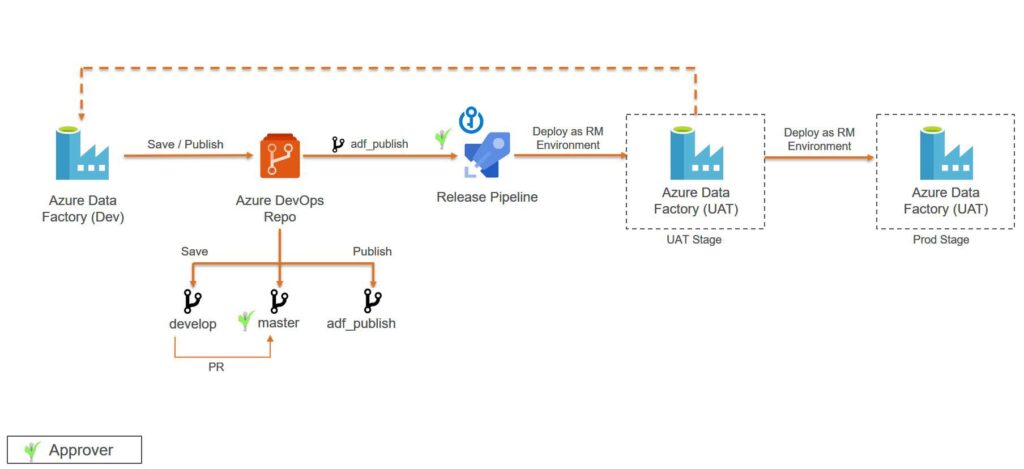What is azure data factory with devops
What is Azure data factory with DevOps: An Azure DevOps Engineer is ultimately responsible for defining and implementing a robust, scalable, pragmatic, and realistic cloud solution for our clients. Create and deploy cloud solutions that are secure, scalable, resilient, monitored, auditable, and cost-effective.
Raw, poorly organized data is frequently stored in relational, non-relational, and other storage systems in the world of big data. Raw data, on the other hand, lacks the context and meaning required to provide meaningful insights to analysts, data scientists, and business decision-makers.
What is Azure data factory with dev ops Big data necessitates the use of a service that can orchestrate and operationalize processes for transforming massive stores of raw data into actionable business insights. Azure Data Factory is a managed cloud service designed for these difficult hybrid extract-transform-load (ETL), extract-load-transform (ELT), and data integration projects. Consider a gaming company that collects petabytes of game logs generated by cloud-based games. The company intends to mine these logs for information about customer preferences, demographics, and usage patterns. It also wants to identify up-sell and cross-sell opportunities, create compelling new features, drive business growth, and give its customers a better experience.

What Is DevOps?
DevOps is the marriage of development (Dev) and IT operations (Ops) (Ops). It is the collaboration of people, processes, and technology to consistently provide value to customers.
DevOps bridges the gap between Operations and Engineering by cross-training each team on the skills of the other. This results in better collaboration and more frequent communication.
Continues Development
This phase entails two tasks: software planning and coding. During the design phase, the project’s vision is established, and the developers begin developing the code for the appliance. There are no DevOps tools required for planning, but there are a variety of tools for code maintenance.
Version Control tools are used to keep the code up to date. The management of ASCII text files is referred to as code maintenance. Git, SVN, Mercurial, CVS, and JIRA will be used as tools. In addition, tools such as Ant, Maven, and Gradle are frequently used in this phase to build/package the code into an executable file that will be forwarded to any of the subsequent phases.


